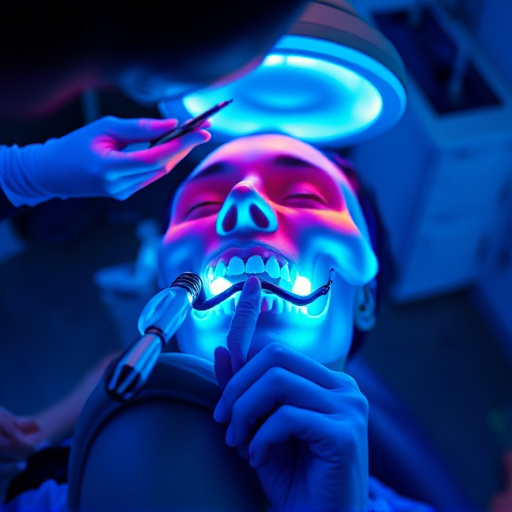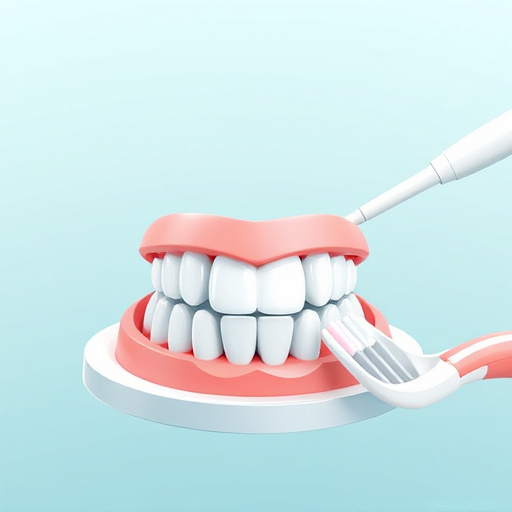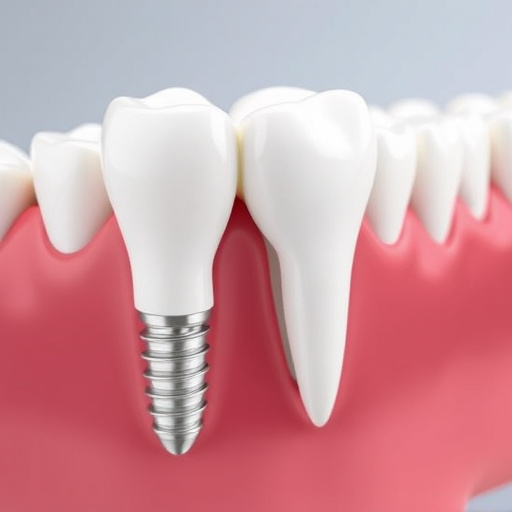Special needs dentistry is a specialized field catering to individuals with developmental conditions like autism, Down syndrome, and cerebral palsy. Dentists in this domain create safe, comfortable environments, adapt procedures to minimize anxiety, and use tailored communication methods. They offer comprehensive services from tooth repair to implants, ensuring improved oral health and confidence for these patients. An inclusive approach involves modifying treatments based on cognitive abilities, sensory sensitivities, and physical limitations, with early intervention and preventive care as key practices. Tailored treatment plans, visual aids, and collaborative care involving caregivers and specialists are vital strategies. Specialized equipment and welcoming atmospheres in family dentistry practices enhance comfort and accessibility for special needs patients.
Special needs dentistry is a specialized field dedicated to addressing the unique oral health requirements of individuals with developmental conditions. This branch of dentistry focuses on creating inclusive, compassionate, and accessible dental experiences tailored to patients’ specific needs. From sensory considerations to modified procedures, understanding these adaptations is crucial for ensuring positive dental interactions. By exploring best practices, we can enhance the quality of care provided to this vulnerable population.
- Understanding Special Needs Dentistry and Its Significance
- Creating an Inclusive Dental Experience for Patients with Developmental Conditions
- Key Considerations and Best Practices in Special Needs Dentistry
Understanding Special Needs Dentistry and Its Significance

Special needs dentistry is a specialized field focused on providing dental care to individuals with developmental conditions such as autism, Down syndrome, and cerebral palsy. It goes beyond routine oral health practices to address unique challenges faced by these patients. Dentists in this domain are trained to create safe, comfortable, and supportive environments that cater to the specific physical, cognitive, and emotional needs of their special needs patients. This includes adapting dental procedures to minimize anxiety, using specialized equipment designed for better access and control, and employing communication methods tailored to each patient’s abilities.
The significance of special needs dentistry lies in ensuring these individuals receive comprehensive tooth repair, dental bonding, and even implant solutions that are both effective and considerate of their particular circumstances. By tailoring treatments to accommodate sensory sensitivities, motor impairments, or communication barriers, dentists can improve oral health outcomes while fostering confidence and independence for patients with developmental conditions.
Creating an Inclusive Dental Experience for Patients with Developmental Conditions

Creating an inclusive dental experience is paramount when providing special needs dentistry for patients with developmental conditions. It involves tailoring every aspect of care to meet their unique requirements and ensuring a safe, comfortable environment. This includes modifying treatment approaches based on their cognitive abilities, sensory sensitivities, or physical limitations. For instance, using visual aids, simplified language, and gentle techniques can help alleviate anxiety and make dental procedures less daunting for these patients.
A family dentistry practice with experience in children’s dentistry recognizes the importance of early intervention and preventive care for individuals with developmental conditions. Clear aligners, for example, offer a discreet and effective solution for correcting mild to moderate orthodontic issues without causing additional discomfort or stress. By embracing diverse treatment options and fostering an understanding atmosphere, practices in special needs dentistry can significantly improve oral health outcomes while enhancing patients’ overall well-being.
Key Considerations and Best Practices in Special Needs Dentistry

Special needs dentistry requires a nuanced approach, especially when treating patients with developmental conditions. Key considerations include tailoring treatment plans to accommodate unique physical and cognitive abilities, as well as ensuring a calm and supportive environment that addresses emotional and sensory needs. Best practices involve integrating communication strategies, such as sign language or visual aids, into dental procedures. Family dentistry professionals should also collaborate closely with caregivers and specialists to provide comprehensive care.
Additionally, certain procedures like dental bonding or even dental implants can be adapted for patients with special needs. Family dentistry practices dedicated to this field often employ specialized equipment and techniques to make treatments more accessible and comfortable. Creating a welcoming atmosphere and fostering trust through consistent routines can significantly enhance the overall experience for these patients, promoting better oral health outcomes in the long term.
Special needs dentistry is not just a specialized field; it’s a crucial component of comprehensive healthcare. By understanding the unique requirements of patients with developmental conditions and implementing inclusive practices, dental professionals can significantly improve access to care and overall oral health outcomes for this vulnerable population. Through tailored approaches, sensitive communication, and a focus on comfort, special needs dentistry ensures that everyone, regardless of their abilities, receives respectful and effective treatment. This field continues to evolve, offering innovative strategies and technologies to enhance the dental experience for patients with developmental conditions.














